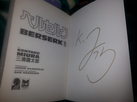Shelf Life
Age of Aquarion
by Bamboo Dong,

Michiko & Hatchin Complete Series BD+DVD
Rental Shelf
Aquarion Evol Part 1 BD+DVD
Yuruyuri Season 2 Premium Edition BD
Perishable
Nothing this week
Welcome to Shelf Life.
 The great pantheon of amazing heroines includes an incredible variety of incredible, strong-willed, beautiful women. From vixens like Fujiko Mine, to never-say-never eco-warriors like Nausicaa, to sweet Madoka Kaname, the list of admirable women goes on and on. And perhaps, it should also include Michiko Malandro, half of the eponymous duo Michiko & Hatchin. Sure… Michiko has done a long stint in jail, and sure, she's not the world's best guardian… but she's strong, she's independent, and her convictions are unshakeable.
The great pantheon of amazing heroines includes an incredible variety of incredible, strong-willed, beautiful women. From vixens like Fujiko Mine, to never-say-never eco-warriors like Nausicaa, to sweet Madoka Kaname, the list of admirable women goes on and on. And perhaps, it should also include Michiko Malandro, half of the eponymous duo Michiko & Hatchin. Sure… Michiko has done a long stint in jail, and sure, she's not the world's best guardian… but she's strong, she's independent, and her convictions are unshakeable. By that same token, pint-sized Hatchin should be included as well, carefully navigating the line between precocious and street smart, a young girl wise beyond her years, and smarter than many of the anime gals that speckle the small screen every season.
It's because of them—Michiko & Hatchin— that the show is damned near impossible to put down, even when the show starts shuffling off track, or spends too much time meandering amongst a jungle of loosely attached story threads. From start to finish, you can't help but love both characters, despite their differences in style and personality. Michiko is brash, but effortlessly cool, and her world seems to operate on "just in time"-o'clock. Hatchin is much more serious, a mix of cynical and resigned that would lead well to a solemn film character played by a younger Elle Fanning. Their relationship is rocky from the beginning, due to a haphazard premise the audience is asked to blindly accept. Even Michiko realizes her claims are dubious, asking Hatchin to just "believe in [her]."
And so we do, because Michiko is the kind of woman that inspires confidence (though perhaps not from Hatchin… nor anyone expecting any level of parenting). Freshly escaped from prison, she manages to track down an orphan girl named Hana (whom she nicknames Hatchin), who lives with an egomaniacal priest and his asshole kids, and literally makes an entrance, blasting a hole through the wall with her motorcycle. She drags Hatchin away, convincing her that her long-dead father Hiroshi is, in fact, not dead. Thus begins a series full of thugs, strippers, bull fighters, drug lords, and police showdowns.
Blockbuster-worthy action scenes and dysfunctional family dynamics aside, Michiko & Hatchin is a pleasure to watch just from its setting alone. Despite all the main characters having Japanese first names, the fictional setting borrows heavily from Brazil, along with a smattering of other Central and South American cultures. Or, to be more accurate, it borrows heavily from the idea of Brazil, taking inspiration from Hollywood movies set south of the Equator. It also samples various styles and eras for its characters designs, from biker babe Michiko to the very Diana Ross-looking Atsuko.
Underneath its cool aesthetics and fun action scenes, though, Michiko & Hatchin does have some problems. While it's interesting to watch certain scenes double- or triple-back in time for additional details or viewpoints, this narrative device does make the series sloppy at times. Primarily, the show doesn't do good enough of a job of grounding scenes in a specific time or place to make these skips effective. It's also difficult to assess any levels of urgency or danger in the series. There are episodes where Michiko and/or Hatchin are on the run from people, or are desperate to reach a location, only to be followed up by episodes where they appear to have all the time in the world. It not only breaks up the flow, but it makes the overall timeline feel jumbled.
By the way, the English dub is fine—Monica Rial is saucy and wonderful as Michiko—but if you're not averse to reading subtitles, I would recommend the Japanese language. If anything, because director Sayo Yamamoto (a woman!) cast two prominent live-action actresses in the lead roles. Michiko is played by Yōko Maki (whom Americans might recognize from the 2004 The Ring remake), while Hatchin is played by Suzuka Ohgo, who played young Chiyo in Memoirs of a Geisha. I wouldn't say they knocked my socks off, but I think their inclusion in the project was important to rookie director Yamamoto.
Regardless of any clunky problems it might have in its storytelling, Michiko & Hatchin is a whole lot of fun and absolutely needs to be seen. I instantly fell in love with the title characters, both of whom are amongst the freshest characters I've seen in a long time. If anything, check out the series for them. You won't regret it.[TOP]
On to a sequel this time, I popped in the first part of Aquarion Evol, a sequel to the 2005 Aquarion series.
 As far as sequels go, Aquarion Evol is... decent, although it's a whole lot shlockier than the original and the characters are a lot more likely to make you roll your eyes. Not that the original was a masterpiece, mind you, but EVOL certainly feels like the bastard of the bunch.
As far as sequels go, Aquarion Evol is... decent, although it's a whole lot shlockier than the original and the characters are a lot more likely to make you roll your eyes. Not that the original was a masterpiece, mind you, but EVOL certainly feels like the bastard of the bunch. It's set 12,000 years in the future, and the story of Apollo and Silvia has become nothing more than a legend told to children. The innocent citizens of planet Vega are under constant attack from those of the planet Altair, who use giant robots called "Abductors" to abduct people and wreak general havoc. Luckily, Vega has a secret weapon—an organization called Neo-DEAVA, which operates as a school for teens with superpowers. Separated into a male side and a female side, they're also trained to pilot giant robots called Aquaria, until the characters basically discover those tingly below-the-belt feelings of puberty and unlock the powers of Aquarion.
There are a lot of similarities with the original show—the mechs look similar, the concepts of love are similar, and everything about the setting and characters evokes a feeling of déjà vu, but Aquarion Evol is written in such a way that intimate knowledge about the original isn't really necessary. Since all of the events in the original are presented as "legend," new viewers are given just enough that they have context for further down the line, but aren't required to know everything going in. Of course, it helps knowing what an Aquarion is, and knowledge of the original allows greater contextualization when it comes to the bad guys, but since all of the characters are new, all of that is just extra icing. In fact, everything about EVOL is built from scratch, including the character relationships and the way they relate to their environment, so if anything, the show is more like an additional entry in the franchise than a follow-up.
One of the elements most likely to polarize viewers is the comedy in the series. It's not really ha-ha funny, but it is pretty goofy. It ranges from the wink-nudge-wink-nudge of students realizing the delights of "combining" with their opposite gender classmates and how great it feels, to boys pining for a peek at the girls, to awkward field trips where the boys and girls have to do date activities. The jokes seem almost like they're pulled from a romcom, except under the pretense that since they're forbidden from falling in love (this proves to be more interesting as the season develops), it's all for "training." Some people will likely love this type of humor—personally, I found it to be a little trite, and prone to repetition.
For the most part, Aquarion Evol is a pleasant time. The mech scenes are fun to watch, especially for those who like crazy transformation scenes and ridiculous super moves. Overall, though, while the series is a notch above mediocre, I find that the characters aren't particularly riveting. They do start revealing some of their truer colors near the end of the first part, though, so perhaps the second half will be more telling.[TOP]
 To round out the week, I popped in NIS America's latest release, their premium edition boxset of Yuruyuri - Happy Go Lily season two. To get this out of the way first—if you liked the first season, you'll like the second season.
To round out the week, I popped in NIS America's latest release, their premium edition boxset of Yuruyuri - Happy Go Lily season two. To get this out of the way first—if you liked the first season, you'll like the second season.That having been said, Yuruyuri is a remarkably easy show to get into. There's not much of a learning curve at all, except to figure out which character is which, and who has a crush on whom. Even the latter bit isn't that difficult to figure out; the characters talk about it all the time, since they don't have much else to talk about.
The show is a bit of an acquired taste, but will certainly be palatable to viewers who like their girls-being-wacky school comedies with a heavy hand of (innocent) yuri. There's a fun mix of comedy in there as well. Each episode starts off with one of Akari's wacky daydreams, and by wacky, I mean that sometimes she's a giant robot, sometimes she's a ninja that can throw her hair buns at people, and sometimes she has a super power where she can make her body invisible, leaving behind only her eyes and mouth. It's a good counterpoint for the rest of the show, which is usually more grounded and involves the girls slacking off while doing homework, or fretting over giving each other chocolates. Some of my favorite scenes include clips of the in-show magical girl anime, Mirakurun (who, by the way, has spawned her own real-life figures and accessories), a tongue-in-cheek jab at fanservicey, male-oriented magical girl shows.
Although the girls spend an incredible amount of time goofing off, there are a lot of tender scenes hidden throughout. The girls' romantic interactions are often played for laughs, but are a genuine portrayal of some of the more awkward moments of teenage love. Something as trivial as a stray piece of chocolate can exist as a Punch Line in one scene, but a sweet callback in another.
Still, I can't help but wish the show was dubbed. While I think the various vignettes inside Yuruyuri are cute and occasionally funny, it's hard to sit down and watch the series for long stretches of time. Nothing really happens, per se, so it's easy to lose focus and interest after some time. Were it dubbed, it'd be the perfect kind of show to toss on in the background while doing other things around the house, or multitasking.
I wasn't terribly enamored with Yuruyuri when I first started watching it, but it grew on me over time. I began to look forward to the quiet moments in between the jokes, which are worth seeking out. I'm not sure how often I'd feel the need to rewatch the series, but I do think that there are some good scenes worth watching at least once.[TOP]
That's it for this week! Shelf Life will be off for next week, but it'll resume the week after that. Thanks for reading!

This week's shelves are from Mike, who wrote in the following:
"Hi! I'm Mike I'm 17. I've been a anime fan for years but recently, about two years ago I watched berserk that made me fall in love with anime. Since then I've been collecting anime and manga. The most beautiful thing in my collection is my signed berserk volume one."
Great collection!
Want to show off your stuff? Send your jpgs to [email protected]. Thanks!
discuss this in the forum (26 posts) |








